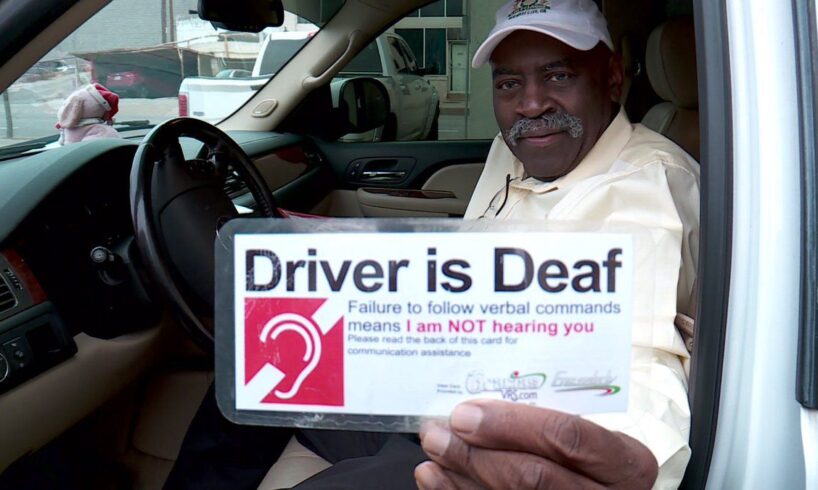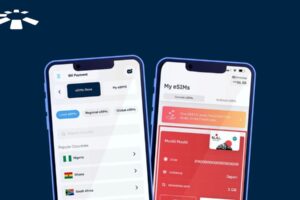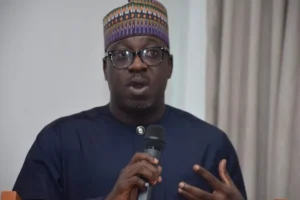
Every September 20th to 26th, the world observes the International Week of the Deaf, commemorating the rights, struggles, and achievements of individuals living with hearing impairments.
Deafness is a challenging condition that hinders the ability of sufferers to effectively function in their daily lives, especially in societies that make little or no investment in public infrastructure aimed at easing the plight of people living with disabilities.
All over the world, deaf people are victims of institutional stigmatisation and deprivation, which often obstruct their rights to express themselves like others freely.
In Nigeria and globally, people have asked, “Can deaf people drive?” For many, the answer seems obvious: “Of course not.” But the reality isn’t that simple.
Take the case of Victor Onwudiegwu, a deaf man from Anambra State, who dragged the Federal Road Safety Corps (FRSC) to court after they allegedly refused to issue him a driver’s licence because of his hearing impairment.
His story, and that of many others, has sparked debate about whether deaf people can drive legally, safely, and effectively, not just in Nigeria but worldwide.
Can deaf people drive?
Yes, deaf people can drive in many countries, including Nigeria, as long as they meet standard vision and skill requirements. Driving is primarily a visual activity. Deaf drivers rely heavily on sight, mirrors and road signs to navigate safely.
In fact, research from several countries has shown that deaf drivers are no more likely to be involved in accidents than hearing drivers.
However, not every country treats deaf drivers equally. In some places, deaf people face restrictions, extra testing, or outright bans.
The Nigerian context
What does Nigerian law say about deaf driving?
The Nigerian Road Traffic Act does not explicitly ban deaf people from driving. But in practice, enforcement is uneven. Cases like Onwudiegwu’s show how regulatory bodies sometimes deny licences based on outdated assumptions about disability and safety.
Advocates, such as the Nigerian National Association of the Deaf (NNAD), have called on the FRSC to recognise the rights of deaf drivers, issue special identification cards if necessary, and provide training for staff on how to interact with deaf applicants.
Nigeria’s Discrimination Against Persons with Disabilities (Prohibition) Act of 2018 also states that
“A person with a disability shall not be discriminated against on the ground of their disability by any person or institution in any manner or circumstance, and that such discrimination is an offence with criminal and/or financial penalties.”
This provision guarantees equal rights and opportunities for people living with disabilities in Nigeria, including access to public services such as driver’s licensing.
How do deaf drivers navigate the road?
Let’s address the elephant in the room: How exactly do deaf drivers navigate the road? Well, driving without hearing is different but not impossible. Deaf drivers develop a sharper reliance on sight. They:
Use mirrors more frequently than hearing drivers.
Watch for flashing lights, turn signals and brake lights as cues.
Stay extra alert to changes in traffic flow.
Avoid driving at night or in chaotic areas when possible.
Use vibration or light-based alert systems inside the car (some vehicles can be modified to show flashing indicators if an emergency vehicle is approaching).
Some driving schools abroad even offer training tailored for deaf students, emphasising visual scanning and defensive driving techniques.
Global comparison of deaf policies
Worldwide, policies vary widely. In many Western countries, such as the United States, the United Kingdom, Canada, Germany, and France, deaf people can obtain standard driving licences with no special conditions attached.
Some countries require additional medical reports, special markings on the driver’s licence, or limit the type of vehicles deaf people can operate.
A handful of countries still bar deaf people from driving. For example, in Rwanda, deaf people are currently not allowed to obtain licences. In Japan, drivers must meet a minimum hearing decibel test or display a sign indicating hearing impairment.
A map and data from Vivid Maps show that approximately 26 countries still restrict deaf drivers in some form, while the majority permit them without additional hurdles.
Barriers and challenges
Even in countries where driving is legal for deaf people, challenges remain, and they include, but are not limited to, the following:
Traffic stops can be stressful when enforcement officers lack knowledge of sign language or effective communication methods.
Some employers or transportation authorities mistakenly assume that deaf drivers are unsafe.
Poor road signs or a lack of visual cues can make driving more challenging.
Different countries or agencies may interpret rules differently, as seen in Nigeria.
What needs to change?
Experts and advocacy groups recommend the following:
Agencies like the FRSC should publicly clarify that deaf people can apply for licences. Clear guidelines would ensure consistency nationwide and prevent cases like Onwudiegwu’s from recurring.
Staff at licensing offices and traffic officers should receive basic sign language training or learn to use written communication effectively. This would improve interactions with deaf applicants and reduce tensions during traffic stops.
Authorities should invest in more visible road signs, flashing alerts, and traffic lights with brighter indicators. This would help deaf drivers and benefit all road users.
Public education campaigns should raise awareness about the abilities of deaf drivers. By showcasing success stories and sharing evidence that deaf drivers are as safe as any other driver, these campaigns can help change harmful stereotypes and promote inclusion.
Driving is more about the sharpness of one’s eyesight, reaction, and willingness to follow the rules of the road rather than how effectively you can hear the sound of a horn. Deaf drivers around the world have demonstrated that they can drive safely like anyone else.
During this International Week of the Deaf, we need to move past the stereotypes and make the road open to everyone, regardless of hearing ability.





